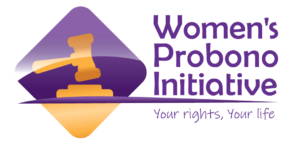The theme of World AIDS Day 2024, “Take the Rights Path” underscores the critical role of human rights in ending AIDS. It serves as a powerful reminder that ending AIDS requires a comprehensive approach that prioritizes human rights and empowers communities. In Uganda, significant strides have been made in combating AIDS, largely due to extensive prevention, diagnosis, treatment, and care programs. According to the 2023 UNAIDs Country Fact sheet Uganda witnessed a 40% decline in new HIV infections between 2010 and 2023, decreasing from 86,000 to 52,000 cases. Concurrently, the HIV prevalence among individuals aged 15-49 decreased from 7.2% to 5.1%.
Despite substantial progress, Uganda’s HIV response is now jeopardized by retrogressive laws that criminalize HIV and marginalize vulnerable groups, limiting access to essential healthcare services. The said laws have targeted high-risk populations such as sex workers, people who inject drugs, and gender minorities, exacerbating stigma and discrimination, and obstructing the HIV response by deterring them from seeking health services.
Discriminatory provisions that criminalise HIV within the Anti-Homosexuality Act, the Penal Code Act, and the HIV Prevention and Control Act have subjected people living with HIV to frequent discrimination within the criminal justice system. Their status is used to justify imposing harsher penalties, even if they are unaware of their infection. For example, in cases of rape and defilement, HIV is used to aggravate the offense regardless of whether the viral load of the perpetrator is so low due to treatment that the likelihood of transmission is near zero. Such a perpetrator would be subjected to a death sentence for acts unlikely to cause HIV transmission.
Various stakeholders have played a role in addressing these disparities. The Women’s Probono Initiative (WPI), in partnership with UNAIDS, has undertaken various initiatives to highlight the unique challenges faced by women in the ongoing fight against HIV/AIDS. WPI has held sensitisation and advocacy campaigns with a rallying cry for systemic change, emphasizing the need to mainstream gender equality in healthcare access and calling for the provision of social support for vulnerable communities, especially women and girls. This is upon recognizing that the face of HIV/AIDS is a poor woman.
Our work advocates for the incorporation of HIV-related legal services into probono and legal aid programs. From representing vulnerable communities to engaging Justice Law and Order Sector actors, WPI has been intentional in rallying actors within the criminal justice system to use a human rights-based approach to stand up for the human rights and dignity of people most affected by HIV.
To us, taking the human rights path means understanding the lived realities of people living with HIV and creating a supportive environment where their rights are respected. The identified gaps and challenges within the criminal justice system speak to a bigger need to strengthen the Justice Law and Order Sector actors’ capacity to advance human rights in Uganda.
Engaging with vulnerable communities has taught us invaluable lessons in applying an intersectional lens in combatting the HIV pandemic. The HIV/AIDS epidemic disproportionately affects women, particularly those in poor communities. In many parts of the world, women are more vulnerable to HIV infection due to social inequalities, economic dependence, and cultural norms that undermine their ability to make autonomous health decisions. The human rights path to ending the HIV pandemic, therefore, should also have a gendered lens.
As we look to the future, let us commit to breaking down the barriers that inhibit people living with HIV’s access to treatment. On this World AIDS Day, we unite our voices to assert that access to healthcare is a human right, and we should persist until every person has the support, they need to live free from the threat of HIV.
Together, we can pave the way for a world where everyone, everywhere, can live with dignity, health, and autonomy. Let’s take the human rights path together toward a future free of HIV/AIDS.
Take The Rights Paths To End Aids-compressed
Another post on the topic: Cialis: Comprehensive Guide to Usage, Benefits, and Side Effects

